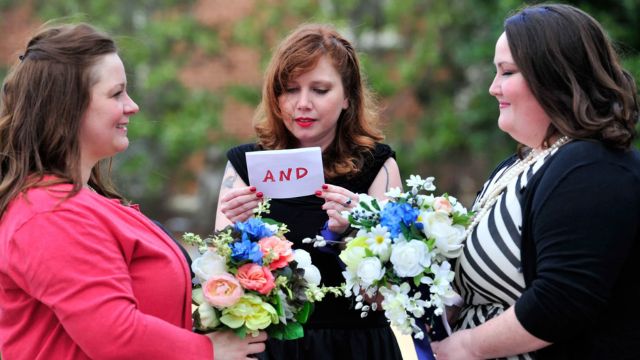Same-sex marriage has been a topic of legal and social debate in Alabama for years. While federal law now guarantees marriage equality across the United States, Alabama has had a complex history regarding LGBTQ+ rights. Understanding the current legal status, past challenges, and ongoing issues surrounding same-sex marriage in Alabama is crucial for couples and advocates.
The Legal Status of Same-Sex Marriage in Alabama
Yes, same-sex marriage is legal in Alabama. However, this was not always the case. Same-sex marriage became legal in Alabama on June 26, 2015, following the landmark U.S. Supreme Court ruling in Obergefell v. Hodges. This decision made marriage equality the law of the land, requiring all states—including Alabama—to recognize and perform same-sex marriages.
Despite the federal ruling, Alabama state officials initially resisted implementing the decision, leading to legal disputes and confusion. Today, same-sex couples in Alabama have the legal right to marry, but they may still face unique challenges due to lingering resistance from some state officials.
A History of Same-Sex Marriage Laws in Alabama
Pre-2015: Bans and Legal Challenges
Before Obergefell v. Hodges, Alabama had some of the strictest laws against same-sex marriage. In 1998, Alabama passed a state law banning same-sex marriage, declaring that only marriages between a man and a woman were recognized.
In 2006, the Alabama Sanctity of Marriage Amendment (Amendment 774) was passed with overwhelming support—over 80% of voters approved it. This amendment not only banned same-sex marriage but also prohibited the state from recognizing same-sex unions performed in other states.
2015: Federal Ruling and State Resistance
In early 2015, a federal judge ruled Alabama’s same-sex marriage ban unconstitutional in the case of Searcy v. Strange, briefly allowing same-sex marriages to begin. However, state officials—including Alabama Supreme Court Chief Justice Roy Moore—attempted to block the ruling, leading to months of legal uncertainty.
Once Obergefell v. Hodges was decided by the U.S. Supreme Court in June 2015, Alabama was legally required to issue marriage licenses to same-sex couples. However, some probate judges refused to comply, further delaying full implementation.
Ongoing Challenges and Legal Obstacles
While same-sex marriage is legal in Alabama, challenges remain:
1. Probate Judges and Marriage Licenses
Alabama changed its marriage laws in 2019 to allow probate judges to stop issuing marriage licenses altogether. Instead of granting marriage licenses, judges now record marriage certificates, allowing some officials to avoid directly facilitating same-sex marriages. While this policy applies to all couples, it was largely seen as a way for officials to avoid recognizing same-sex unions.
2. Religious and Cultural Resistance
Alabama remains a conservative state, and opposition to same-sex marriage is still present among some religious groups, lawmakers, and local officials. Some same-sex couples may encounter obstacles when seeking services for weddings or legal recognition of their marriage.
3. Parental Rights and Legal Protections
Same-sex couples in Alabama may still face difficulties regarding parental rights, adoption, and family law matters. While legal precedents have strengthened LGBTQ+ family rights, some couples encounter challenges in areas like adopting children, securing parental recognition, and accessing spousal benefits.
LGBTQ+ Rights Beyond Marriage in Alabama
While same-sex marriage is legally protected, other LGBTQ+ rights in Alabama remain limited. There are no statewide non-discrimination protections for LGBTQ+ individuals in housing, employment, or public services. This means same-sex couples may still face discrimination in areas outside of marriage.
However, federal laws and Supreme Court rulings—such as Bostock v. Clayton County (2020)—provide some protections for LGBTQ+ individuals against workplace discrimination.
Conclusion
Same-sex marriage is legal in Alabama, but the state has a long history of resistance to marriage equality. While federal law ensures that all couples have the right to marry, challenges persist in areas such as parental rights, religious opposition, and legal loopholes used by state officials. As laws evolve, advocacy groups continue to fight for broader LGBTQ+ protections in Alabama to ensure true equality beyond marriage.









